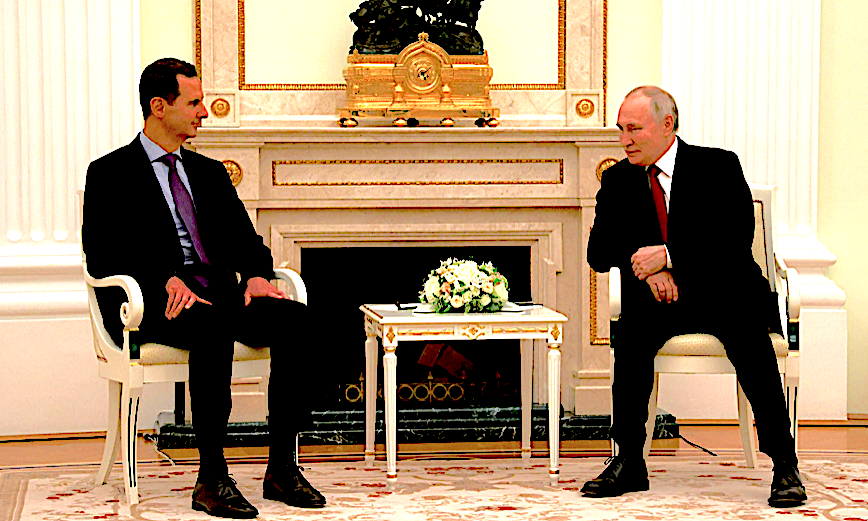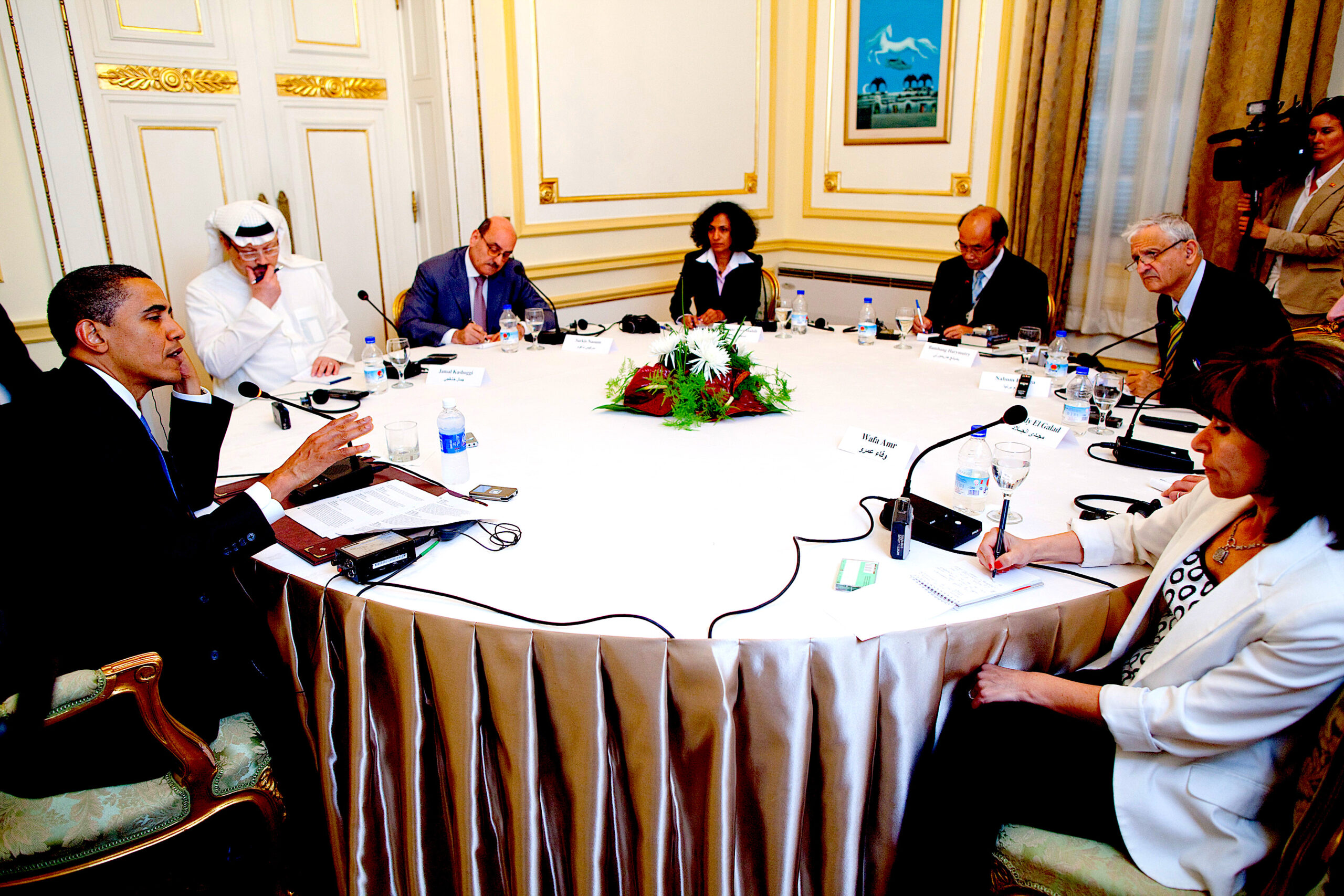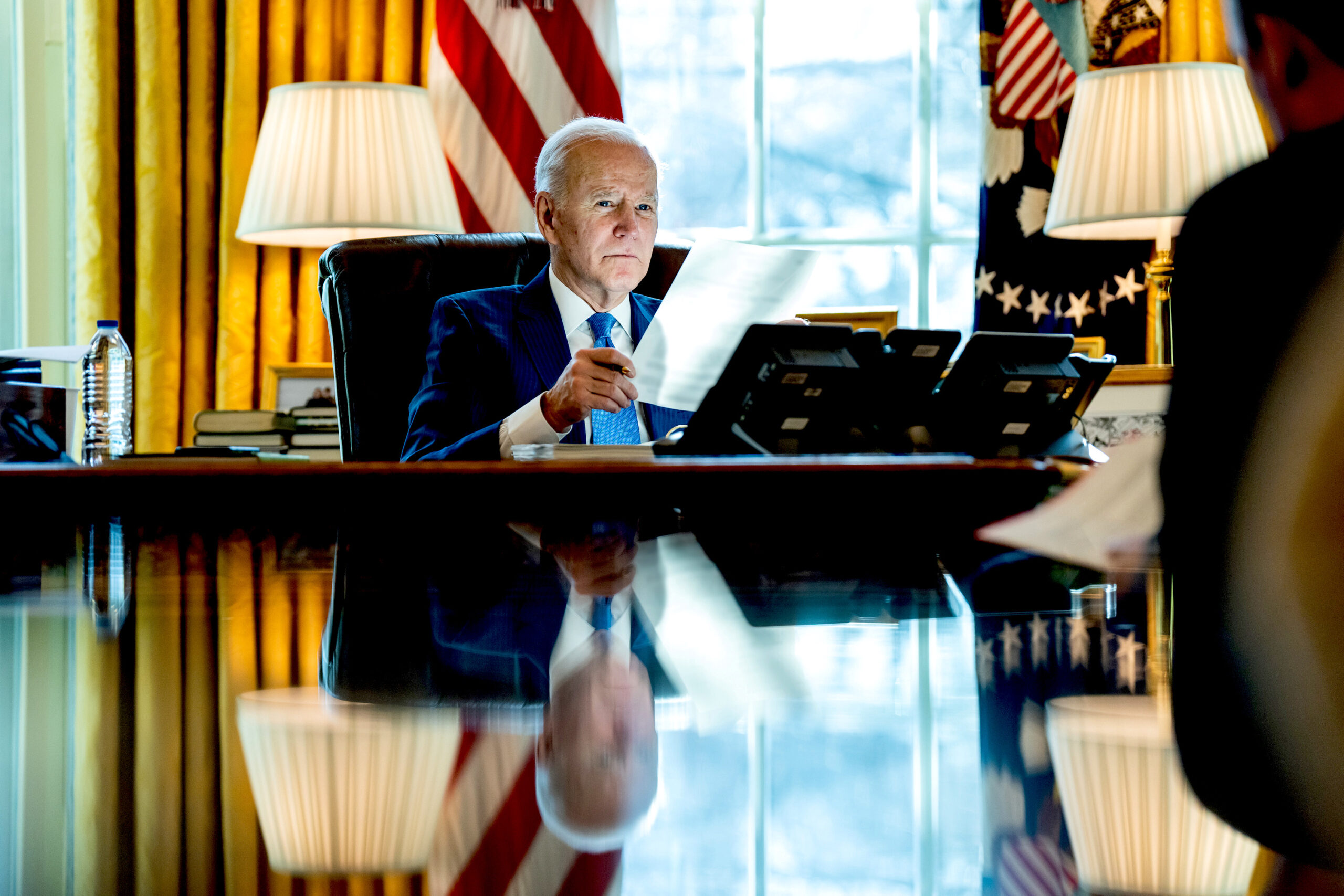Syria Comes in from the Cold
SYRIA IN CONTEXT, 1 May 2023
Scott Ritter | Consortium News – TRANSCEND Media Service
After the Chinese-brokered rapprochement between Saudi Arabia and Iran, another diplomatic coup is unfolding in the Middle East. This one is orchestrated by the Russians.

Syrian President Bashar al-Assad with Russian President Vladimir Putin in Moscow on March 15. (Vladimir Gerdo, TASS)
24 Apr 2023 – While the world continues to come to grips with the reality — and consequences — of the Chinese-brokered rapprochement between Saudi Araba and Iran, another diplomatic coup is unfolding in the Middle East.
This one is orchestrated by the Russians. Saudi Foreign Minister Prince Faisal bin Farhan flew to Damascus last week, where he met Syrian President Bashar Assad. This visit followed that of Syrian Foreign Minister Faisal Mikdad earlier this month to Riyadh.
The two countries severed diplomatic relations in 2012 at the beginning of a Syrian civil conflict that saw Saudi Arabia throwing its money behind anti-regime fighters seeking to remove Assad from power.
The startling diplomatic about face is part of a new Saudi Arabian foreign policy, embodied in its historic new relationship with Iran, which seeks to engender regional stability through conflict resolution instead of military-brokered containment.
As the Saudi Foreign Ministry noted on bin Farhan’s visit to Damascus, the Saudi goal is “to reach a political solution to the Syrian crisis that would end all its repercussions and preserve Syria’s unity, security, stability, and Arab identity and restore it to its Arab surroundings.”
Dramatic Outbreak of Diplomacy

Saudi Foreign Minister Faisal bin Farhan in January.
(World Economic Forum, /Ciaran McCrickard, CC BY-NC-SA 2.0)
The dramatic outbreak of diplomacy between Riyadh and Damascus is the by-product of Russia’s growing influence in Middle Eastern affairs and is one of the clearest signals yet of the declining role of the United States, whose military and diplomatic posture in the region has greatly diminished over the course of the past few years.
Russia has long-standing ties with the Syrian government. In 2015, its intervention during Syria’s civil conflict upheld the Assad government, allowing it to regain the initiative against the U.S.-and Saudi-backed opposition.
Russia’s relationship with Saudi Arabia, however, was more complex, with the Saudis having strategically aligned themselves with U.S. foreign and national security objectives in the Middle East and in global energy policies.
But that dynamic changed after October 2018, when Saudi security agents, alleged to have been working under the direct orders of Saudi Crown Prince Mohammad bin Salman, murdered Saudi dissident journalist Jamal Khashoggi.

Jamal Khashoggi, second from left, during a June 4, 2009, roundtable with U.S. President Barack Obama, at far left. (The White House, Wikimedia Commons)
The Saudis took umbrage at the U.S. outcry at the crime, especially when then-presidential candidate Joe Biden threatened the crown prince, popularly known as MbS, with isolation and punishment.
“We were going to in fact make them pay the price, and make them in fact the pariah that they are,” Biden said during a televised debate in November 2019, adding that there is “very little social redeeming value in the present government in Saudi Arabia.”
Biden was later to regret those words when, in July 2022, he was compelled to fly to Saudi Arabia and ask MbS to increase oil production to lower energy costs that had skyrocketed because of the consequences of U.S.-led efforts to sanction Russian oil and gas in the aftermath of the Russian invasion of Ukraine in February 2022.
While MbS received Biden, the U.S. did not get the results it wanted from the meeting for reasons that went beyond poor personal chemistry between MbS and Biden. By then, both Saudi Arabia and Russia recognized that, as major oil producers, their interests were not well served by competing in a market dominated by U.S.-driven angst.
This realization matured in the spring of 2020 in the aftermath of an “oil war” between the two nations which saw Saudi Arabia precipitously lower the price of oil by overproducing, only to be matched by Russia.
The Saudi-Russian oil war ended because of negotiations brokered by then-President Donald Trump and for a while the world was compelled to live in an environment where the top three oil producers — the U.S., Russia and Saudi Arabia — openly colluded on global production quotas.
But then came the Russian invasion of Ukraine, U.S.-led energy sanctions and the recognition by both Russia and Saudi Arabia that the U.S. was not a stable partner when it came to managing the most important economic resource of their nations — energy.
US-Saudi Relations Strained

President Joe Biden on phone with Saudi Arabia’s King Salman in February 2022.
(White House, Adam Schultz)
As Russia-Saudi bonds grew stronger based upon shared goals and objectives, the strain between Saudi Arabia and the U.S. likewise grew, driven by the total disconnect that existed between the Biden administration and MbS over Middle East policy.
Saudi Arabia has embarked on an ambitious project, Vision 2030, which seeks to transition the oil-rich kingdom away from its current over-reliance on energy production to a more diversified economy based upon modern technologies and non-energy economic initiatives.
A key prerequisite for this vision is for Saudi Arabia to become a force of connectivity in the region and the world — something that U.S.-driven policies promoting regional instability and war made impossible. The Biden administration had doubled down on a policy in which Saudi Arabia served as the keystone in confronting Iran along an arc of crisis stretching from Lebanon, through Syria and Iraq; and into Yemen.
Saudi Arabia confronted the reality that it could not win its war in Yemen (ongoing since 2014), and that the U.S.-led destabilization efforts in Lebanon, Syria and Iraq were floundering. With its own economic diversification goal in mind, it opted to work with Russia to engender the kind of stability needed for energy-driven economies to flourish.
Russia quietly organized talks with both Saudi and Syrian officials and diplomats, culminating with the March 2023 visit of President Assad to Moscow, where the issue of a rapprochement with Saudi Arabia was finalized.
Work remains to be done, however, as Saudi Arabia’s effort to bring Syria back into the ranks of the Arab League faces resistance from staunch U.S. allies Jordan, Kuwait and Qatar. But the fact is that, thanks to Russian and Chinese diplomacy, peace, not war, is breaking out all over in the Middle East. Bringing Syria in from the cold is simply the most recent manifestation of the phenomena.
________________________________________
 Scott Ritter was a US Marine Corps intelligence officer for 12 years. As a chief weapons inspector for the UN Special Commission in Iraq, he was labeled a hero by some, a maverick by others and a spy by the Iraqi government. In charge of searching out weapons of mass destruction within Iraq, Ritter was on the front lines of the ongoing battle against arms proliferation. He has had an extensive and distinguished career in government service with assignments in the former Soviet Union and the Middle East. In 1991, Ritter joined the United Nations weapons inspections team, or UNSCOM. He participated in 34 inspection missions, 14 of them as chief inspector. Ritter resigned from UNSCOM in August 1998, citing U.S. interference in the inspections. He is the author of many books, including Scorpion King: America’s Suicidal Embrace of Nuclear Weapons from FDR to Trump; Iraq Confidential: The Untold Story of the Intelligence Conspiracy to Undermine the UN and Overthrow Saddam Hussein; Target Iran: The Truth about the White House’s Plans for Regime Change; and Waging Peace: The Art of War for the Antiwar Movement. Contributor author: Deal of the Century: How Iran Blocked the West’s Road to War, Clarity Press. He is a graduate of Franklin and Marshall College, with a B.A. in Soviet history.
Scott Ritter was a US Marine Corps intelligence officer for 12 years. As a chief weapons inspector for the UN Special Commission in Iraq, he was labeled a hero by some, a maverick by others and a spy by the Iraqi government. In charge of searching out weapons of mass destruction within Iraq, Ritter was on the front lines of the ongoing battle against arms proliferation. He has had an extensive and distinguished career in government service with assignments in the former Soviet Union and the Middle East. In 1991, Ritter joined the United Nations weapons inspections team, or UNSCOM. He participated in 34 inspection missions, 14 of them as chief inspector. Ritter resigned from UNSCOM in August 1998, citing U.S. interference in the inspections. He is the author of many books, including Scorpion King: America’s Suicidal Embrace of Nuclear Weapons from FDR to Trump; Iraq Confidential: The Untold Story of the Intelligence Conspiracy to Undermine the UN and Overthrow Saddam Hussein; Target Iran: The Truth about the White House’s Plans for Regime Change; and Waging Peace: The Art of War for the Antiwar Movement. Contributor author: Deal of the Century: How Iran Blocked the West’s Road to War, Clarity Press. He is a graduate of Franklin and Marshall College, with a B.A. in Soviet history.
Go to Original – consortiumnews.com
Tags: Anglo America, Bullying, Conflict Mediation, Cooperation, ISIS, Invasion, Middle East, Occupation, Pentagon, Rogue states, Russia, Syria, USA, War Economy, War of Terror, War on Terror, Warfare
DISCLAIMER: The statements, views and opinions expressed in pieces republished here are solely those of the authors and do not necessarily represent those of TMS. In accordance with title 17 U.S.C. section 107, this material is distributed without profit to those who have expressed a prior interest in receiving the included information for research and educational purposes. TMS has no affiliation whatsoever with the originator of this article nor is TMS endorsed or sponsored by the originator. “GO TO ORIGINAL” links are provided as a convenience to our readers and allow for verification of authenticity. However, as originating pages are often updated by their originating host sites, the versions posted may not match the versions our readers view when clicking the “GO TO ORIGINAL” links. This site contains copyrighted material the use of which has not always been specifically authorized by the copyright owner. We are making such material available in our efforts to advance understanding of environmental, political, human rights, economic, democracy, scientific, and social justice issues, etc. We believe this constitutes a ‘fair use’ of any such copyrighted material as provided for in section 107 of the US Copyright Law. In accordance with Title 17 U.S.C. Section 107, the material on this site is distributed without profit to those who have expressed a prior interest in receiving the included information for research and educational purposes. For more information go to: http://www.law.cornell.edu/uscode/17/107.shtml. If you wish to use copyrighted material from this site for purposes of your own that go beyond ‘fair use’, you must obtain permission from the copyright owner.
